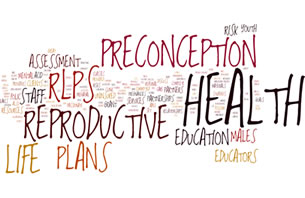Children and Youth with Special Health Needs (CYSHN)
Programs
- Birth Defects Monitoring and Analysis
- Early Hearing Detection and Intervention
- Follow Along Program
- Longitudinal Follow-up for Newborn Screening Conditions
Related Sites
Contact Info
Children and Youth with Special Health Needs
651-201-3650
1-800-728-5420 (toll-free)
Contact Info
Children and Youth with Special Health Needs
651-201-3650
1-800-728-5420 (toll-free)
Preconception Health in Minnesota Grants
 The Preconception Health (PCH) Grant projects began in 2012. The goal of these grants is to improve preconception health and care for non-pregnant, reproductive age women and their partners in Minnesota. This is achieved through support of evidence-based preconception health practices and programs that prevent and/or reduce the risk for birth defects. A priority audience for this grant is women of reproductive age experiencing racial and ethnic disparities in health status.
The Preconception Health (PCH) Grant projects began in 2012. The goal of these grants is to improve preconception health and care for non-pregnant, reproductive age women and their partners in Minnesota. This is achieved through support of evidence-based preconception health practices and programs that prevent and/or reduce the risk for birth defects. A priority audience for this grant is women of reproductive age experiencing racial and ethnic disparities in health status.
In 2020, MDH awarded birth defects prevention funds to support the following programs.
- Healthy Communities for Healthy Futures (HC4HF): MDH awarded 3-year grants to myHealth for Teens & Young Adults and WellShare International, which ended in June 2023.
- IMPLICIT: This grant funds an organization with clinical quality improvement experience to recruit and support family practice and pediatric clinic sites to implement IMPLICIT, Interventions to Minimize Preterm and Low Birth-Weight Infants Using Continuous Quality-Improvement Techniques. The IMPLICIT model provides tools for clinics to screen mothers for smoking, depression, folic acid, and family planning during well child checks, and to follow up with coaching and referrals. The IMPLICIT Interconception Care (ICC) model is implemented using a continuous quality improvement framework to improve the care of women and babies before, during, and after pregnancy. MDH awarded this 5-year grant to ACET, Inc. Clinics throughout Minnesota have or are currently implementing the IMPLICIT ICC quality improvement model; this grant ends in June 2025.
For information about other ways to prevent birth defects, visit the CDC Birth Defects Prevention Website.
Last Updated: 02/04/2025